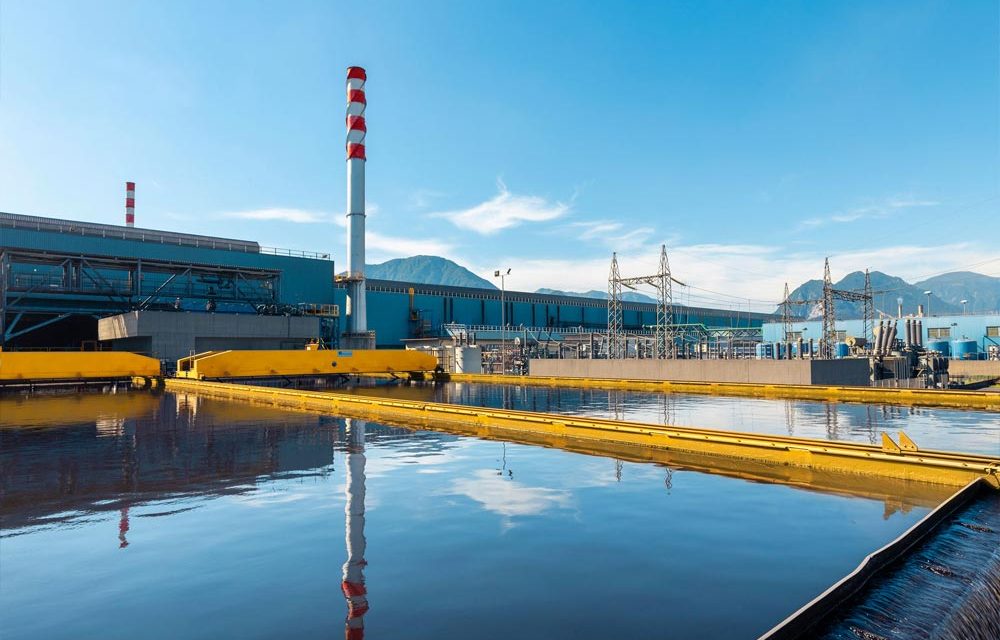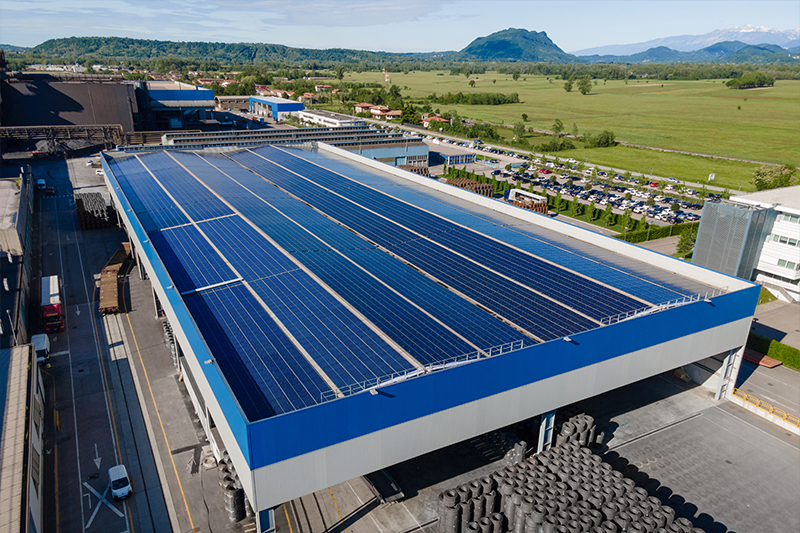Zero Waste
The Zero Waste initiative is committed to the valorisation and
recovery of waste from the production process as new products.
The production process which uses an Electric Arc Furnace (EAF) starts with the collection of scrap iron, which comes from recycled products that have reached the end of their life cycle. This scrap iron is melted and then subjected to continuous casting. Therefore, steel production is a perfect example of an industry based on the principles of the circular economy.
The activity of the melting furnace creates a production residue, called slag, which is cooled and transformed into a 100% recycled product registered with the Granella® brand. This product is used as a replacement for natural basalt or porphyry in the construction of highly adhesive and safe road pavements. Currently, approximately 400,000 tons per year of Granella® are used instead of materials that would otherwise have to be extracted from quarries.
Another impact of Zero Waste is the attempt to recover as much of the remaining waste as possible through forms of industrial symbiosis. The fume abatement powders and rolling scale are sent to third-party plants to recover and enhance the contained substances.
Additionally, a new product called Siderlime® has been introduced, which is used in the cement production cycle as a partial replacement for natural raw materials (typically marl and/or limestone) in the preparation of the raw mixture supplied to the kiln firing of Portland cement clinker, which is, due to its hydraulic properties, the basic constituent of all types of cement and hydraulic binders.
Starting in 2012, the Zero Waste Water project has been implemented at the Osoppo production site in order to minimize water intake and discharge. The goal is to reduce as much as possible all the discharges and purges from the cooling circuits of the steelworks and rolling mills by maximizing recycling within the production processes.
The project continues to achieve considerable water savings, both in terms of quantity extracted from the groundwater and volumes discharged. At the Osoppo site, a complete water treatment plant renovation project began in 2020 and was completed at the end of 2021, further rationalizing the use of water resources.
In 2022, water consumption decreased by 3.1% compared to 2021, confirming the positive trend of recent years.

In order to significantly reduce the impact of energy consumption, the Zero Waste Energy project was launched in 2010 with a comprehensive survey of all energy sources and uses within Ferriere Nord, the largest company in the Pittini Group.
Over the years, the Pittini Group has implemented plant efficiency projects and installed photovoltaic systems at the Ferriere Nord production facility in Osoppo, which generated self-produced electricity equivalent to 1,603 GJ in 2022. Acciaierie di Verona, in agreement with the municipal company AGSM, has also established a district heating plant for the urban context of Verona, which produced 43,191 GJ of energy in 2022.

Ferriere Nord S.p.A. has achieved certification for its Energy Management System under the UNI EN ISO 50001 standard.



